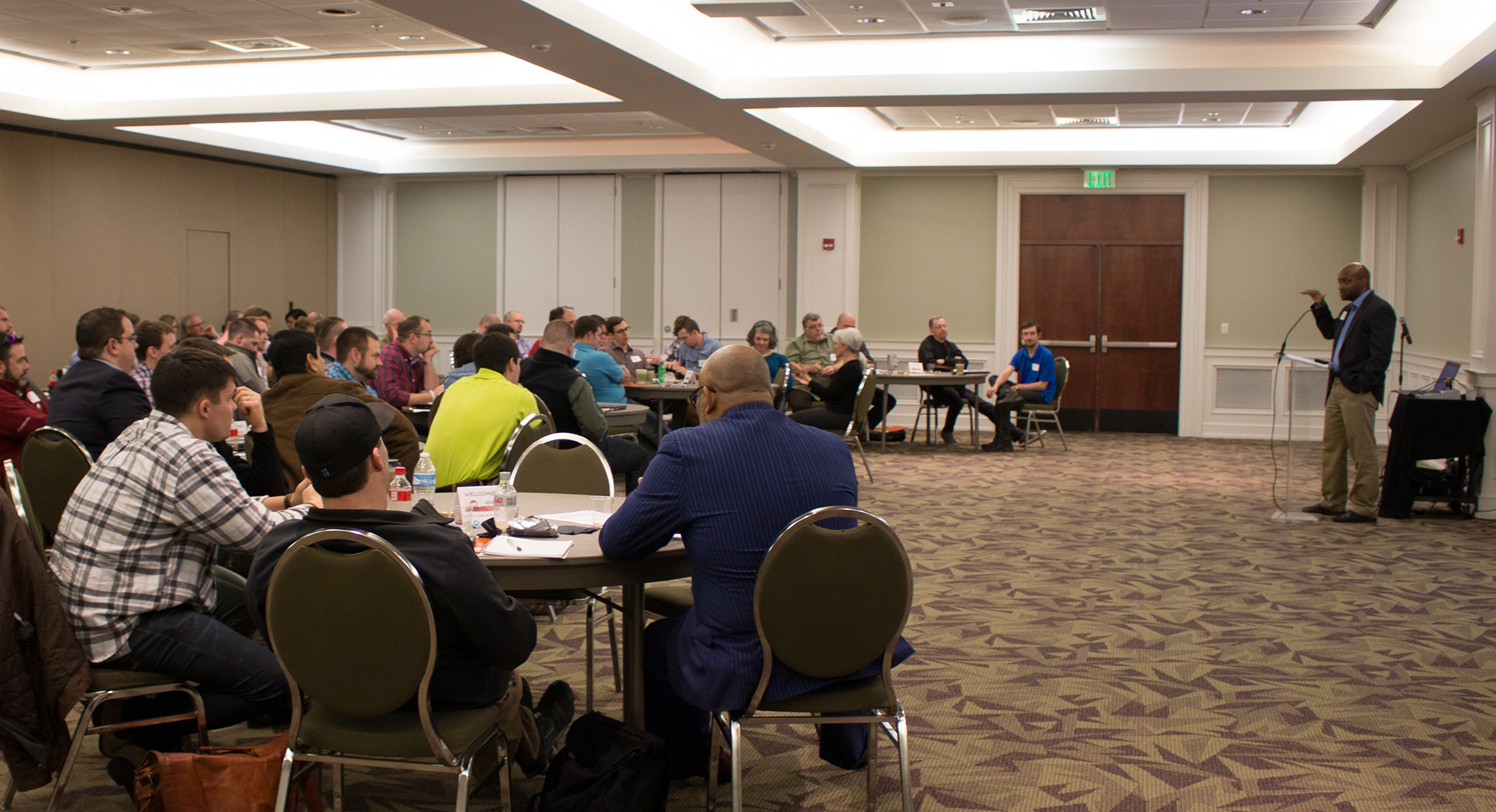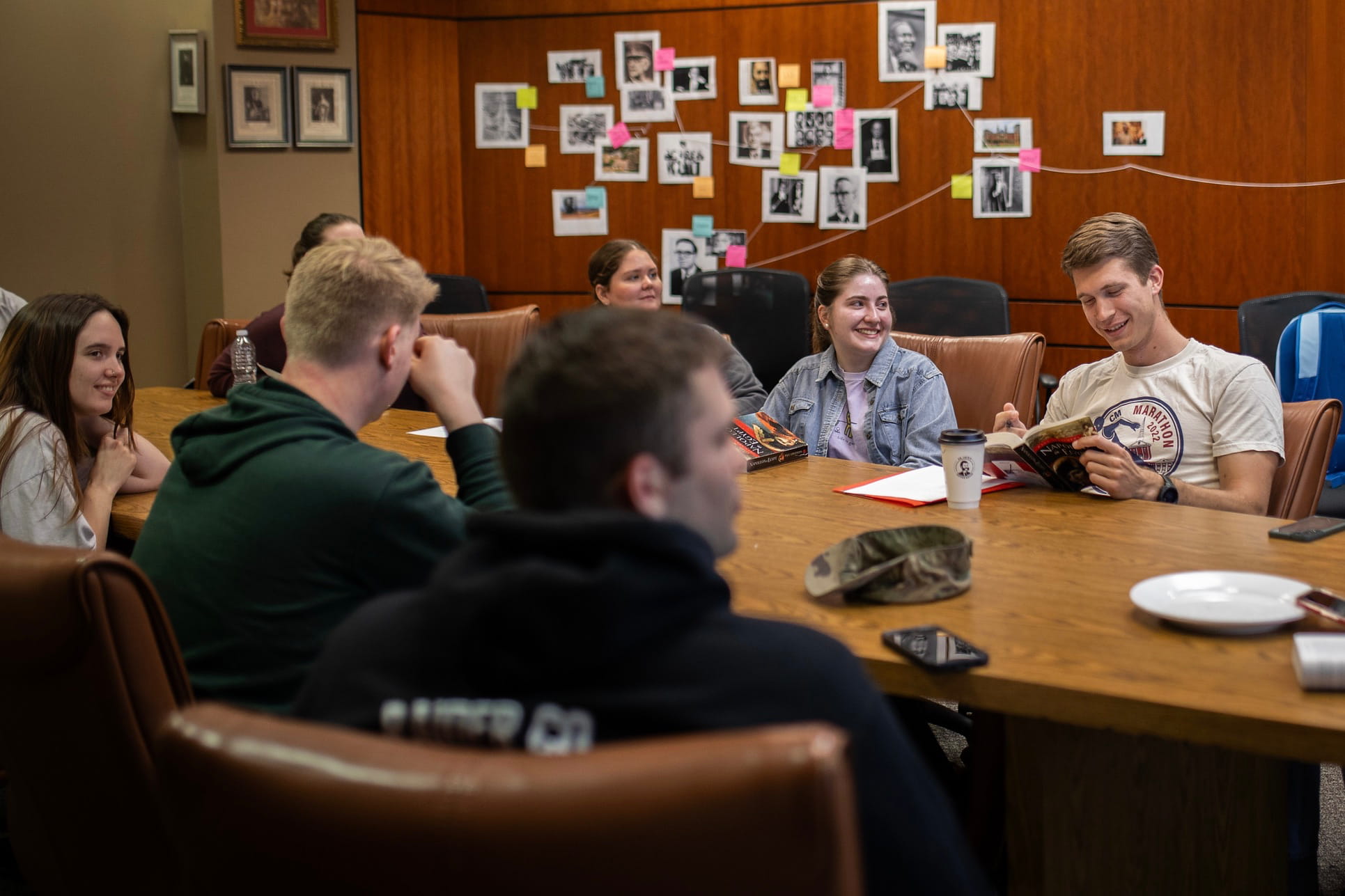Ouachita’s 2017 Christian Counseling Conference explores adolescent issues
 March 06, 2017
- Sarah Davis
March 06, 2017
- Sarah DavisOuachita Baptist University’s Pruet School of Christian Studies hosted the seventh
annual Conference on Issues in Christian Counseling on Friday, Feb. 24. The conference,
which is sponsored by Ouachita, New Orleans Baptist Theological Seminary and the Arkansas
Baptist State Convention, brought together 174 mental health professionals, social
workers, nurses and ministers to explore the topic of “Adolescent Issues.”
“It is so gratifying to see our enrollment increase each year,” said Dr. William Viser,
professor of Christian ministries at Ouachita and the creator of the conference. “It
is a testimony to the strength of our program that the vast majority return year after
year telling me it is their favorite conference. I truly believe this conference will
grow through the years and it is such a blessing to a part of it.”
Among several breakout sessions that professionals could attend included such topics
as “Teens and Trauma: Helping Adolescents Find Their Way Through Crisis” led by Dr.
Aaron New, “Moral Development in Adolescence” led by Dr. Larry Henderson, “Restoring
Trust Between Adolescents and Parents: Moving Past the Lies” led by Dr. Jeff Nave
and “Adolescent Sociology” led by Dr. Elizabeth Kelly.
The counseling conference was approved by the National Board for Certified Counselors
(NBCC) for continuing education credit. Eight NBCC hours were available for licensed
alcohol and abuse, professional and marriage and family counselors; national career
counselors; nursing professionals; and social work professionals. The conference also
included a pastoral track.
Dr. Viser led the lunch session, titled “Wounded Adolescents: Confronting Cutting.”
In the session, he discussed the psychology behind self-mutilation in adolescents
and the signs that a teenager may be self-injuring.
“The adolescent is trying to deal with feelings that are overwhelming for them, and
this is the reason they deliberately destroy body tissues,” Dr. Viser said. “When
they self-injure, endorphins are going to kick in, and it’s going to mask their pain.
They may to do it consciously, they may do it unconsciously.”
Dr. Viser said there are several different forms of self-mutilation, but cutting is
the most common. Adolescents who cut themselves are not necessarily suicidal, they
just want relief from the symptoms they are experiencing, he noted. Signs an adolescent
may be cutting include wearing long sleeves in hot temperatures and bloodstains on
clothes.
One breakout session titled “The Adolescent Brain: Why They Do What They Do” was led
by Dr. Kathryn Steele, professor of counseling and director of clinical training at
New Orleans Baptist Theological Seminary, where she holds the James H. & Susan E.
Brown Christian Counseling Chair. The session addressed how the brain develops from
infancy until adulthood but mainly focused on the underdeveloped parts of the brain
during adolescence. These underdeveloped parts, including the prefrontal cortex, explain
why many teens often have poor decision-making skills and extreme mood swings.
“I think it is very important for us to understand the wonderful complexity of how
God created us and yet how it impacts us emotionally and relationally,” Dr. Steele
said. “It’s very important for us to learn about that and to discover the best ways
and most effective manners to deal with all the issues we are helping adolescents
with.”
For more information about the conference, contact the Pruet School of Christian Studies
at (870) 245-5599.
By Sarah Davis // Photo by Stephanie Bell: James Hawkins, with Arkansas Baptist Children's Homes, presented a breakout session
in the pastoral track.
February 27, 2017
You Also Might Like
Ouachita reports Spring '26 enrollment, led by 50% increase in graduate students
February 11, 2026Recent
Ouachita reports Spring '26 enrollment, led by 50% increase in graduate students
February 11, 2026



